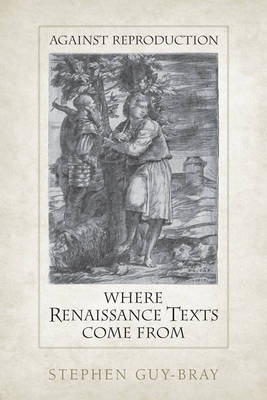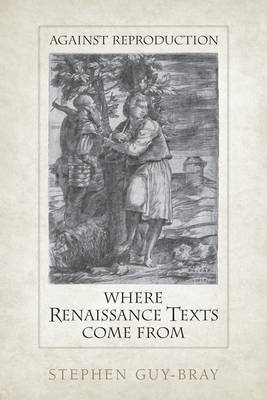
- Retrait gratuit dans votre magasin Club
- 7.000.000 titres dans notre catalogue
- Payer en toute sécurité
- Toujours un magasin près de chez vous
- Retrait gratuit dans votre magasin Club
- 7.000.0000 titres dans notre catalogue
- Payer en toute sécurité
- Toujours un magasin près de chez vous
Description
The idea of the author as parent and the text as child is a pervasive metaphor throughout Renaissance poetry and drama. In Against Reproduction, Stephen Guy-Bray sets out to systematically interrogate this common trope, and to consider the limits of using heterosexual reproduction to think of textual creation.
Through an analysis of Renaissance texts by poets and playwrights including William Shakespeare, Christopher Marlowe, and John Milton, Guy-Bray argues that the reproductive metaphor was only one of the ways in which writers presented their own literary production. Their uses of sexual language reveal that these authors were surprisingly ambivalent about their own writing. Guy-Bray suggests that they often presented their work in such a way as to feminize themselves and to associate the writing process with shame and abjection.
Offering fresh perspectives on well-known texts, Against Reproduction is an accessible and compelling book that will affect the study of both Renaissance literature and queer theory.
Spécifications
Parties prenantes
- Auteur(s) :
- Editeur:
Contenu
- Nombre de pages :
- 240
- Langue:
- Anglais
Caractéristiques
- EAN:
- 9781442640603
- Date de parution :
- 28-11-09
- Format:
- Livre relié
- Format numérique:
- Genaaid
- Dimensions :
- 158 mm x 236 mm
- Poids :
- 499 g

Les avis
Nous publions uniquement les avis qui respectent les conditions requises. Consultez nos conditions pour les avis.






